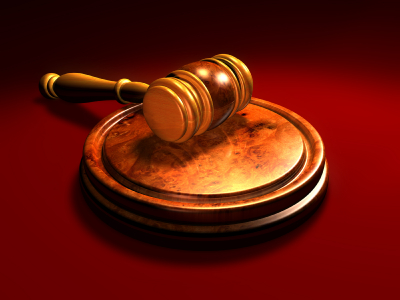Oracle has filed an appeal against the decision of a jury which ruled that Google did not infringe on its patents in the development of the Android mobile operating system.
But Google wasn’t satisfied with the outcome of the case either and also plans to file an appeal.
In May, the jury handed Oracle a partial victory, finding that Google was wrong to use Java Application Programming Interfaces (APIs) without a licence. However, the claim was later thrown out by the Judge William Alsup, who ruled that APIs were not copyrightable.
Previously Alsup described the lawsuit, filed in a federal court in California, as “the ‘World Series’ of high-tech law cases”.
World Series, part two
In a lawsuit which started back in 2010, Oracle demanded $1 billion (£630m) in damages, claiming that Google violated copyrights of the Java software platform, infringed two (brought down from seven) Java-related patents and illegally used design specifications of at least 37 APIs.
 Google, in turn, had argued that the APIs are an essential part of the free Java programming language, and should not be protected by the copyright law. However, the company’s position was weakened by the leaked corporate emails that seemed to confirm it knew it had to negotiate a license if it was to use Java.
Google, in turn, had argued that the APIs are an essential part of the free Java programming language, and should not be protected by the copyright law. However, the company’s position was weakened by the leaked corporate emails that seemed to confirm it knew it had to negotiate a license if it was to use Java.
In May, the jury decided that while Google did indeed violate copyrights to Java, it did not infringe Oracle’s patents. Both companies were disappointed by the decision. According to Bloomberg, Google said its infringement on nine lines of programming code was “legally insignificant”, while Oracle still maintained its patents and APIs were used illegally.
A month later, Judge Alsup overruled the decision of the jury, deciding that APIs that were used to build Android were not protected by copyright. As a result, instead of $1 billion, Oracle had to agree to a zero damages settlement. As for those nine lines of code, Google’s expenses were limited to statutory damages of $150,000. To add insult to injury, Oracle was ordered to pay Google’s legal costs in excess of $1 million.
“This order does not hold that Java API packages are free for all to use without licence,” wrote Alsup in his ruling. “It does not hold that the structure, sequence, and organisation of all computer programs may be stolen. Rather, it holds on the specific facts of this case, the particular elements replicated by Google were free for all to use under the Copyright Act.”
Now, the US Court of Appeals for the Federal Circuit in Washington will review the Judge’s landmark decision.
How well do you know open-source software? Take our quiz!




